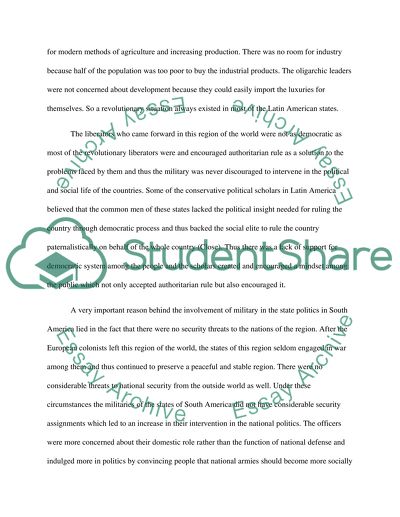Cite this document
(“Factors Affecting the Rise of Military Rules in South-American Essay”, n.d.)
Factors Affecting the Rise of Military Rules in South-American Essay. Retrieved from https://studentshare.org/history/1581684-factors-affecting-the-rise-of-military-rules-in-south-american-countries-in-20th-century
Factors Affecting the Rise of Military Rules in South-American Essay. Retrieved from https://studentshare.org/history/1581684-factors-affecting-the-rise-of-military-rules-in-south-american-countries-in-20th-century
(Factors Affecting the Rise of Military Rules in South-American Essay)
Factors Affecting the Rise of Military Rules in South-American Essay. https://studentshare.org/history/1581684-factors-affecting-the-rise-of-military-rules-in-south-american-countries-in-20th-century.
Factors Affecting the Rise of Military Rules in South-American Essay. https://studentshare.org/history/1581684-factors-affecting-the-rise-of-military-rules-in-south-american-countries-in-20th-century.
“Factors Affecting the Rise of Military Rules in South-American Essay”, n.d. https://studentshare.org/history/1581684-factors-affecting-the-rise-of-military-rules-in-south-american-countries-in-20th-century.


